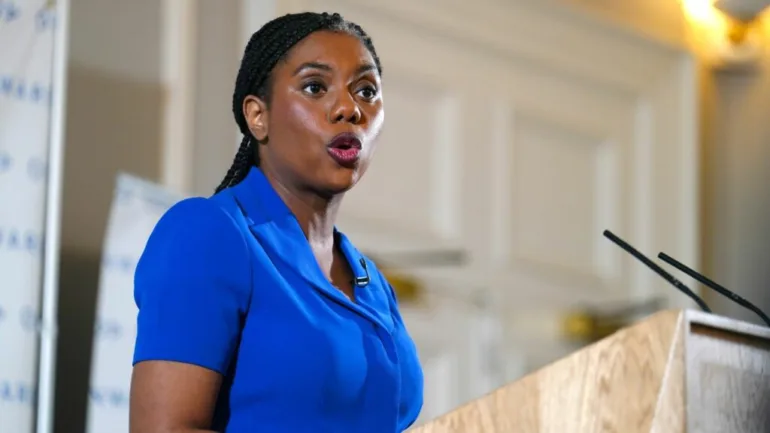UK Conservative Party leader Kemi Badenoch has stated that she no longer identifies as Nigerian and does not hold a Nigerian passport, distancing herself from the West African country despite her roots.
Speaking on the Rosebud podcast hosted by Gyles Brandreth, Badenoch acknowledged her Nigerian ancestry and formative years spent in the country, but said she does not view it as part of her personal identity.
“I’m Nigerian through ancestry, by birth—despite not being born there—because of my parents. But by identity, I’m not really,” she said. “I know the country very well, I have a lot of family there, and I’m very interested in what happens there.”
Born in Wimbledon, London, in 1980, Badenoch revealed she has not renewed her Nigerian passport in over 20 years. Although she spent much of her childhood in Nigeria and the United States, she returned to the UK at the age of 16 and has since become deeply rooted in British society.
Reflecting on her formative years, she shared how difficult it was to find a sense of belonging while living in Nigeria:
“Never quite feeling that I belonged there,” she said.
Despite her emotional and familial ties to Nigeria, Badenoch emphasized her detachment from it on a personal level. She described “home” as the life she has built in the UK, with her husband, children, and extended family, including her political family in the Conservative Party.
“Home is where my now family is. My children, my husband, my brother and his children, my in-laws. The Conservative Party is very much part of my family—my extended family, I call it.”
Badenoch also spoke about the surprise many of her peers felt when she discovered she held British citizenship, a right granted under birthright laws still in place when she was born—just before they were repealed by Margaret Thatcher’s government in 1981.
“Finding out that I did have that British citizenship was a marvel to so many of my contemporaries, so many of my peers,” she said.
Badenoch is widely seen as a rising star within the Conservative Party and is often mentioned as a potential future prime minister. Her remarks have sparked conversations about identity, belonging, and diasporic ties within the British-Nigerian community.


